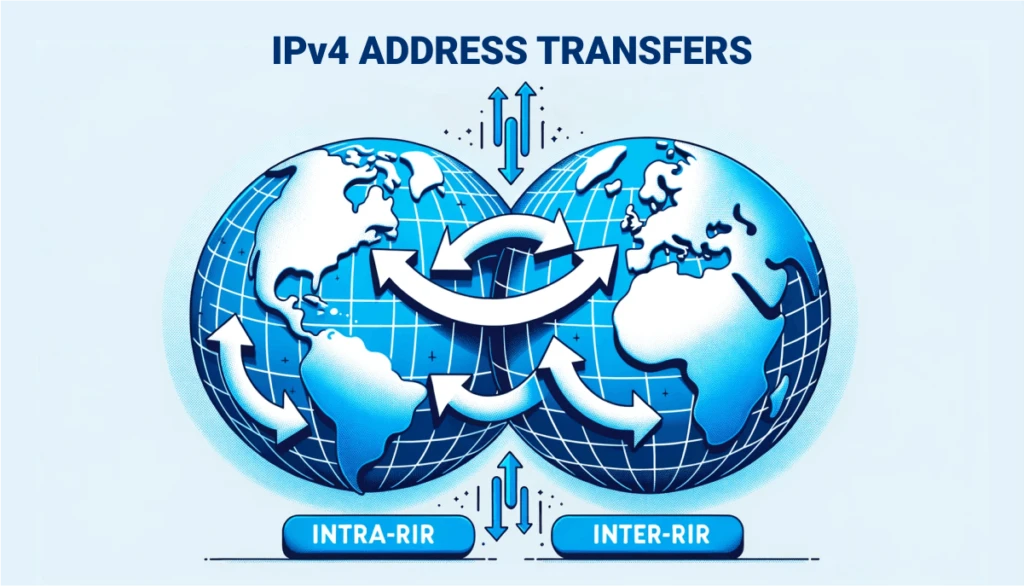Table of Contents
ARIN, or the American Registry for Internet Numbers, is a key organization responsible for managing and allocating IP addresses in North America. As one of the five Regional Internet Registries (RIRs) globally, ARIN ensures that IP addresses and Autonomous System Numbers (ASNs) are distributed efficiently and fairly within its jurisdiction. This article provides an in-depth look into ARIN, its history, functions, and the essential services it offers to the internet community.
A Brief History of ARIN
Established in 1997, ARIN was formed in response to the growing need for an organized entity to oversee the allocation and registration of IP addresses in North America. Prior to ARIN’s formation, the task of IP address allocation was managed by various smaller entities without a centralized system. Recognizing the need for a more structured approach, especially with the increasing demand for internet resources, ARIN was founded to bring order, transparency, and efficiency to the process.
Over the years, ARIN has adapted to the changing dynamics of the internet, addressing challenges such as the transition from IPv4 to IPv6 and the increasing demand for IP resources due to the proliferation of internet-connected devices.
ARIN’s Role as a Regional Internet Registry
Regional Internet Registries (RIRs) are organizations tasked with the responsibility of managing, allocating, and registering IP addresses within specific geographical regions. ARIN, in particular, serves the United States, Canada, and several parts of the Caribbean.
Key responsibilities of ARIN as an RIR include:
IP Address Allocation
ARIN manages the distribution of both IPv4 and IPv6 addresses within its region. This involves assessing requests for IP addresses, ensuring that they are allocated based on need and availability, and maintaining a public registry of allocations.
Autonomous System Numbers (ASNs) Allocation
ASNs are essential for routing internet traffic between ISPs. ARIN oversees the allocation and registration of these numbers, ensuring that each ASN is unique and serves its intended purpose.
Policy Development
ARIN plays a crucial role in developing policies related to internet number resources. These policies are formulated with input from the internet community and are designed to ensure fair and efficient distribution of resources.
Registry Maintenance
ARIN maintains a detailed and up-to-date registry of all IP address and ASN allocations within its jurisdiction. This registry is publicly accessible and ensures transparency in resource allocation.
By fulfilling these roles, ARIN ensures that the internet remains functional, stable, and accessible within its region, catering to the needs of ISPs, businesses, and individual users alike.
IP Registration Services
One of the core functions of ARIN is to provide IP registration services. This involves a systematic approach to ensure that every IP address, whether IPv4 or IPv6, is uniquely assigned and documented. Here’s a breakdown of the services:
IPv4 Registration
Despite the exhaustion of IPv4 addresses, ARIN continues to manage the existing pool, handling transfers, returns, and reallocations. Organizations can request IPv4 addresses based on specific needs, and ARIN evaluates these requests against established policies.
IPv6 Registration
With the depletion of IPv4 addresses, the transition to IPv6 has become imperative. ARIN facilitates the allocation and registration of IPv6 addresses, ensuring that organizations have the resources they need for future growth.
Whois Directory Service
ARIN maintains a public directory, known as the Whois service, which provides information about IP address allocations and registrations. This tool is essential for transparency and for resolving technical queries or issues related to IP addresses.
Reverse DNS
ARIN offers a reverse DNS service, allowing for the resolution of IP addresses back to domain names. This service is crucial for various network operations and security functions.
Transfer Services
As the demand for IPv4 addresses continues, ARIN provides a structured process for organizations to transfer IP resources. This ensures that transfers are conducted transparently and in compliance with established policies.
ARIN’s Services Overview
Beyond its primary role in IP registration, ARIN offers a suite of services designed to support the broader internet community within its jurisdiction. These services ensure that the internet remains stable, secure, and resilient. Here’s an overview:
Resource Certification (RPKI)
ARIN provides a Resource Public Key Infrastructure (RPKI) service, which allows resource holders to certify their IP address and ASN resources. This certification adds a layer of security, helping to prevent route hijacking and other malicious activities.
Billing and Fee Management
ARIN offers a streamlined system for members and non-members to manage their fees associated with IP resources, ensuring transparency and ease of payment.
Training and Educational Resources
Recognizing the importance of an informed community, ARIN provides various training programs, webinars, and educational resources. These cover topics ranging from IP allocation processes to best practices in internet resource management.
Public Policy Development
ARIN has a structured process for the development of public policies related to internet number resources. This involves community input, discussions, and a transparent decision-making process to ensure policies are fair and relevant.
Online Tools and Platforms
ARIN offers a range of online tools for users, including ARIN Online, a portal for managing IP resources, and NetHandle, a tool for querying information about network-related entities.
Outreach and Engagement
While not a service in the traditional sense, ARIN actively engages with its community through events, forums, and feedback mechanisms. This ensures that ARIN remains responsive to the needs and concerns of its stakeholders.
The Significance of Internet Numbers
In the vast digital expanse of the internet, every device, website, and online service requires a unique identifier. These identifiers, known as internet numbers, encompass IP addresses and Autonomous System Numbers (ASNs). Their role is paramount in ensuring seamless online communication and connectivity.
IP addresses, whether they’re IPv4 or the newer IPv6, act as unique digital addresses for devices connected to the internet. Think of them as the street addresses of the digital world. They ensure that data packets sent from one device reach their intended destination without any hitches. With the proliferation of internet-connected devices, the demand for IP addresses has surged, making their efficient allocation and management crucial.
On the other hand, ASNs play a pivotal role in routing internet traffic. Assigned to networks that use Border Gateway Protocol (BGP) for routing, ASNs ensure that data packets traverse the vast networks of the internet in the most efficient manner. They’re instrumental in determining the best path for data, especially when it has to hop across multiple networks to reach its destination.
Together, IP addresses and ASNs form the backbone of the internet. They ensure its stability, reliability, and efficiency. Without a structured system for their allocation and management, as provided by organizations like ARIN, the internet as we know it would be riddled with conflicts, inefficiencies, and disruptions.
ARIN’s Interaction with ISPs
Internet Service Providers (ISPs) are the gateways through which individuals and businesses access the internet. They play a critical role in ensuring that users can browse websites, send emails, stream content, and more. Given the centrality of ISPs in the internet ecosystem, their relationship with ARIN is of paramount importance.
ISPs rely on ARIN for a steady supply of IP addresses. As the demand for internet connectivity grows, so does the need for more IP addresses. ARIN ensures that ISPs receive the necessary IP resources, both IPv4 and IPv6, to cater to their expanding user base. This allocation is done based on established policies, ensuring fairness and transparency.
Beyond IP allocation, ISPs also turn to ARIN for Autonomous System Numbers (ASNs). These numbers are crucial for larger ISPs that manage vast networks and need to route traffic efficiently across the internet. ASNs allow them to participate in global routing, ensuring that their users’ data reaches its destination swiftly and without disruptions.
Moreover, ARIN provides ISPs with tools and resources to manage their IP allocations. Platforms like ARIN Online facilitate easy management, updates, and transfers of IP resources. Additionally, training programs and webinars offered by ARIN equip ISPs with the knowledge to navigate the complexities of internet resource management.
In essence, ARIN and ISPs share a symbiotic relationship. While ARIN provides ISPs with the resources they need to operate, ISPs, in turn, ensure that the internet remains accessible and efficient for users in North America.
Conclusion
In the complex infrastructure of the internet, ARIN plays a critical role in managing and allocating internet numbers in North America. Its responsibilities, ranging from the allocation of IP addresses and ASNs to policy development and registry maintenance, are crucial for the smooth operation of the internet.
ARIN’s commitment to transparency and fairness in the distribution of resources, coupled with its extensive range of services, ensures that the needs of ISPs, businesses, and individual users are met. Its active engagement with the internet community contributes to the development of policies that are relevant and fair.
As the internet continues to evolve, the role of organizations like ARIN becomes increasingly important. They ensure that the growth of the internet is managed in a way that maintains stability, accessibility, and efficiency. In conclusion, ARIN’s contributions to the internet landscape in North America are significant and indispensable.
Key Takeaways
What does ARIN stand for and what is its primary function?
ARIN stands for the American Registry for Internet Numbers. It is responsible for managing and allocating IP addresses in North America.
How did ARIN come into existence?
Established in 1997, ARIN was formed to bring order, transparency, and efficiency to the allocation and registration of IP addresses in North America, which was previously managed by various smaller entities without a centralized system.
What regions does ARIN serve?
ARIN serves the United States, Canada, and several parts of the Caribbean.
What are the key responsibilities of ARIN?
ARIN’s primary responsibilities include IP address allocation (both IPv4 and IPv6), Autonomous System Numbers (ASNs) allocation, policy development, and maintenance of a public registry of allocations.
How does ARIN handle IP registration?
ARIN provides systematic IP registration services, ensuring that every IP address, whether IPv4 or IPv6, is uniquely assigned and documented. This includes managing the existing IPv4 pool, facilitating the allocation and registration of IPv6 addresses, maintaining the Whois directory service, offering reverse DNS service, and providing a structured process for IP resource transfers.
What additional services does ARIN offer?
Beyond IP registration, ARIN offers services like Resource Public Key Infrastructure (RPKI) for security, billing and fee management, training and educational resources, public policy development, and various online tools and platforms.
Why are internet numbers significant?
Internet numbers, including IP addresses and ASNs, are paramount for ensuring seamless online communication and connectivity. They act as unique digital addresses for devices connected to the internet and play a crucial role in routing internet traffic efficiently.
How does ARIN interact with Internet Service Providers (ISPs)?
ISPs rely on ARIN for a steady supply of IP addresses. ARIN ensures that ISPs receive the necessary IP resources to cater to their expanding user base, based on established policies.
How does ARIN contribute to the stability and efficiency of the internet?
ARIN ensures the efficient allocation and management of IP addresses and ASNs, which form the backbone of the internet. Without a structured system for their allocation, the internet would face conflicts, inefficiencies, and disruptions.
What is ARIN IPv4 Address Waitlist?
The ARIN IPv4 Address Waitlist is a mechanism set up by ARIN (American Registry for Internet Numbers) to manage and allocate the remaining IPv4 addresses to requesting organizations once its primary reserve was depleted. Organizations are placed in a queue and are allocated addresses based on availability and certain criteria.





